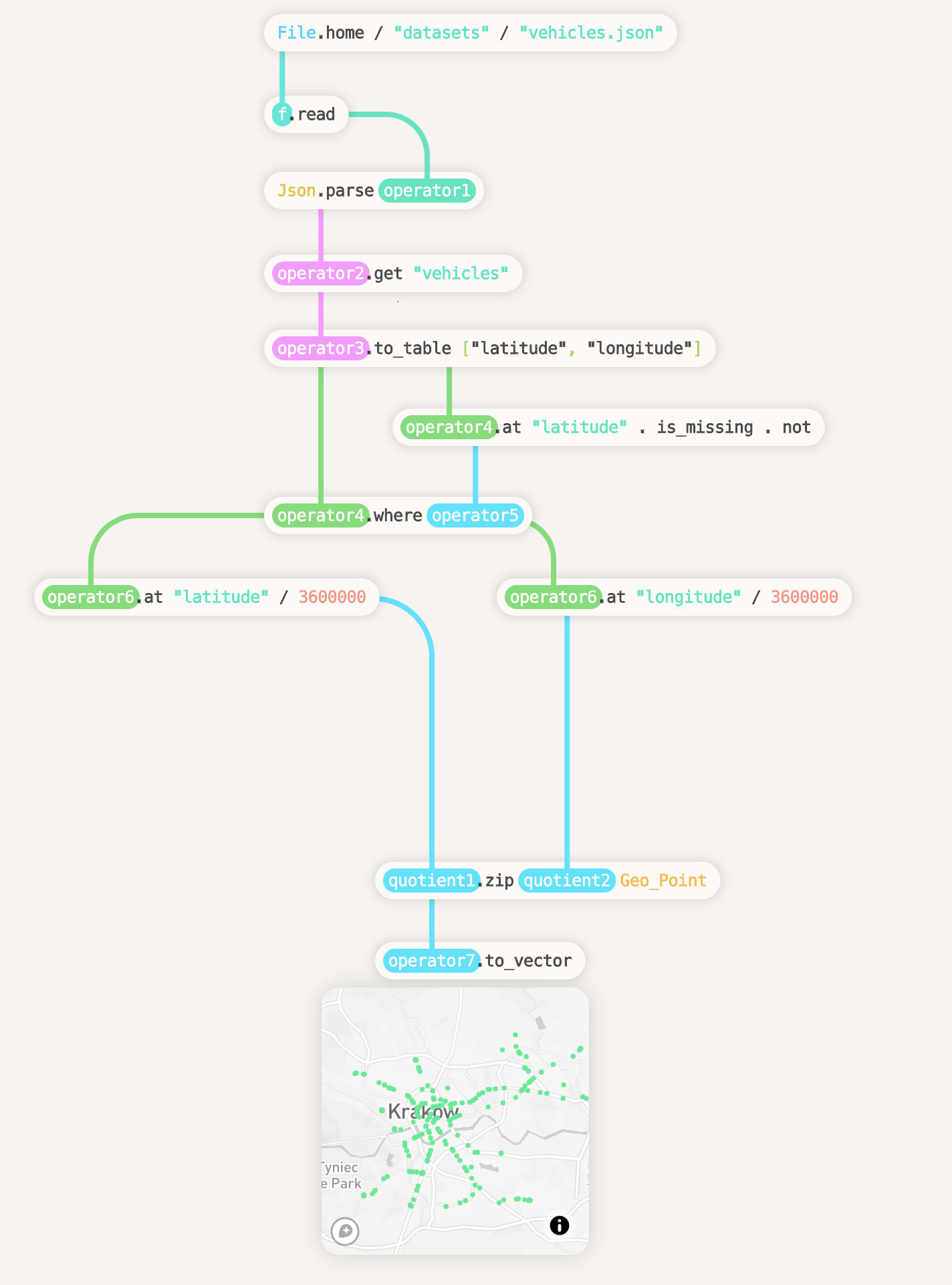| .cargo | ||
| .github | ||
| distribution | ||
| docs | ||
| engine | ||
| lib | ||
| project | ||
| std-bits/src/main/java/org/enso/base | ||
| table/src/main/java/org/enso/table | ||
| test | ||
| tools | ||
| .gitignore | ||
| .jvmopts | ||
| .prettierignore | ||
| .prettierrc.json | ||
| .scalafmt.conf | ||
| build.sbt | ||
| Cargo.lock | ||
| Cargo.toml | ||
| LICENSE | ||
| package.json | ||
| README.md | ||
| RELEASES.md | ||
All your data and analytics. Unified. Interactive.
Enso is a general-purpose programming language and environment for interactive data processing. It is a tool that spans the entire stack, going from high-level visualisation and communication to the nitty-gritty of backend services, all in a single language.
-
Connect to all the tools you're already using
Enso ships with a robust set of libraries, allowing you to work with local files, databases, HTTP services and other applications in a seamless fashion.
-
Cutting-edge visualization engine
Enso is equipped with a highly-tailored WebGL visualization engine capable of displaying even millions of data points 60 frames per second in a web browser.
-
Polyglot
Enso allows you to use any Java library in your code. Soon, it will also allow you to copy-paste code from Python, JavaScript, Ruby, and R with close-to-zero performance overhead at runtime.
-
High performance
Enso graphs and code can run up to 100x faster than the analoguous Python code.
-
Results you can trust
Enso incorporates many recent innovations in data processing and programming language design to allow you to work quickly and trust the results that you get. It is a purely functional programming language with higher-order functions, user-defined algebraic datatypes, pattern-matching, and a rich set of primitive types.
-
Runs everywhere
Enso is available on MacOS, Windows, and Linux, and the Enso IDE runs on web-native technologies. In time, you'll be able to run it in the web-browser, giving even your tablet of phone access to your data.
Getting Started

-
Download Enso
-
Watch Tutorials
-
Watch Video Podcasts
-
Keep up with the latest updates
Project components
Enso consists of several sub projects:
-
Enso Engine. The Enso Engine is the set of tools that implement the Enso language and its associated services. These include a just-in-time compiler, runtime, and language server. These components can be used on their own as command line tools.
-
Enso IDE. The Enso IDE is the desktop application that allows working with the visual form Enso. It consists of an Electron application, a high performance WebGL UI framework, and the Searcher which provides contextual search, hints, and documentation for Enso functionality.
License
The Enso Engine is licensed under the Apache 2.0, as specified in the LICENSE file. The Enso IDE is licensed under the AGPL 3.0, as specified in the LICENSE file.
This license set was choosen to both provide you with a complete freedom to use Enso, create libraries, and release them under any license of your choice, while also allowing us to release commercial products on top of the platform, including Enso Cloud and Enso Enterprise server managers.
Contributing to Enso
Enso is a community-driven open source project which is and will always be open and free to use. We are committed to a fully transparent development process and highly appreciate every contribution. If you love the vision behind Enso and you want to redefine the data processing world, join us and help us track down bugs, implement new features, improve the documentation or spread the word!
If you'd like to help us make this vision a reality, please feel free to join our chat, and take a look at our development and contribution guidelines. The latter describes all the ways in which you can help out with the project, as well as provides detailed instructions for building and hacking on Enso.
If you believe that you have found a security vulnerability in Enso, or that you have a bug report that poses a security risk to Enso's users, please take a look at our security guidelines for a course of action.
Enso's Design
If you would like to gain a better understanding of the principles on which Enso
is based, or just delve into the why's and what's of Enso's design, please take
a look in the docs/ folder. It is split up into subfolders for each
component of Enso. You can view this same documentation in a rendered form at
the developer docs website.
This folder also contains a document on Enso's design philosophy, that details the thought process that we use when contemplating changes or additions to the language.
This documentation will evolve as Enso does, both to help newcomers to the project understand the reasoning behind the code, but also to act as a record of the decisions that have been made through Enso's evolution.




